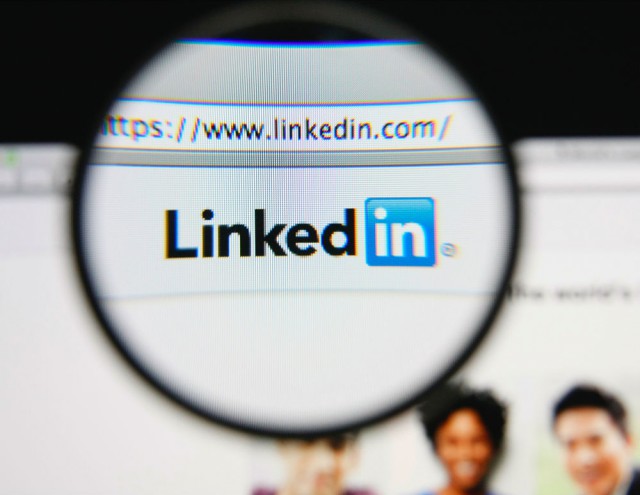
Twitter reinstates tweets that mock the Prophet Muhammad and depict Koran burning
Twitter has reversed blocks it placed on numerous tweets and accounts in Pakistan that were deemed "blasphemous" and "unethical", including some that featured anti-Islamic content, depictions of the Prophet Muhammad, and photos of the Koran burning. Pakistani authorities complained to Twitter back in May, and the social network "made an initial decision to withhold content in Pakistan".
But after the Pakistan Telecommunication Authority failed to provide the additional information that Twitter requested, the accounts and tweets have been restored.

88 percent of Brits believe their phones are tapped
A new piece of research has looked into attitudes and beliefs about privacy when it comes to mobile phones, following Vodafone's dramatic revelations about state surveillance and tapping mobile conversations earlier this month.
Predictably enough, the study, conducted by OnePoll and sponsored by Silent Circle (the private comms firm and outfit involved with the Blackphone) found that most people were cynical on the matter. Only 12 percent of the 1,000 UK respondents believed their mobile calls and texts remained private -- in other words, almost nine in ten think they're being listened in on. Indeed, 35 percent admitted they were "careful what they say" during a mobile call, assuming their conversation will be heard by flapping intelligence agency ears somewhere.

LinkedIn to face lawsuit for spamming users' email address books
A judge in the Northern District of California has paved the way for a lawsuit against the social network LinkedIn for violating the privacy of its users. The complaint was that LinkedIn "violated several state and federal laws by harvesting email addresses from the contact lists of email accounts associated with Plaintiffs’ LinkedIn accounts and by sending repeated invitations to join LinkedIn to the harvested email addresses". It relates to the fact that LinkedIn not only used the address books of those signing up for accounts to tout for business by sending out an email to that effect, but also sent follow-up email if there was no response.
US district judge Lucy Koh ruled that while users granted permission for LinkedIn to access their contact list it is this 'spamming' that is likely to land the company in court again. The judge outlined the process users were complaining about, explaining that LinkedIn sent an email to connected in users' address books -- albeit with initial permission -- sends the same email a week later if the recipient has not joined LinkedIn, and a third email if another week passes without a signup.

#FreeTheNipple campaign leads to breastfeeding nipple-shot ban reversal by Facebook
Facebook comes under fire for all manner of things -- it's just part and parcel of being a social network. When users are not up in arms at the site's privacy policies, they are found voicing their disapproval at the types of content they're not allowed to publish on their timelines. There are lots of types of pictures that are frowned upon, and parents were upset to find that many of the photos they posted fell foul of Facebook's moderators. Facebook's Community Standards have never included a stated ban on breastfeeding pictures, but those that included glimpses of nipples were often swiftly removed. A well-publicized campaign that used the hashtag #FreeTheNipple seems to have had the desired result.
As noticed by The Independent, there has been a softening of views as Facebook Moderators are now encouraged to consider the context in which nipples appear in photographs. The Community Standards state "Facebook has a strict policy against the sharing of pornographic content and any explicitly sexual content where a minor is involved. We also impose limitations on the display of nudity". But there is the caveat that "we aspire to respect people’s right to share content of personal importance, whether those are photos of a sculpture like Michelangelo's David or family photos of a child breastfeeding".

Privacy blow -- .UK websites must publicize registrant's name and address
It seems there are new privacy worries at every turn. The latest cause for concern relates to websites in the UK. Nominet, the internet registry services provider for .uk domains, has changed one of its policies, and the change means that individuals running websites may have to reveal their home addresses. There are obvious privacy and security concerns associated with this, particularly for websites run by individuals who wish to remain anonymous -- full names of domain registrants must also be displayed.
Nominet's policy on opting out of appearing on WHOIS searches is not immediately clear. Things start off in a fairly simple fashion. "Only domain name holders that are non-trading individuals can opt out of having their address details published on the WHOIS". Great; my website is just a blog. There's no need to advertise my home address for the world to see, you might think. But 'advertise' could be the key word here. If Nominet classifies you and your site as a business, it is a completely different story and your home address must be displayed.

How to stop your smartphone hemorrhaging data
While the technology versus privacy battle rages on, many consumers and businesses are still unaware of how much data can be gleaned from a mobile phone.
Despite the NSA and Edward Snowden being in the news every other day, most people don't realize how much data their most personal device is hemorrhaging at all times. But that doesn't mean you have to shut off your mobile, throw it in the nearest body of water and live a life off the grid.

The most popular stories on BetaNews this past week: June 1 -- 7
The biggest news of this week came from Apple which held a keynote speech at WWDC in San Francisco. One of the major announcements was the unveiling of iOS 8 which will be making its way to iPhone and iPads around the world sometime in the Fall. There was a lot to take in, including "Hey, Siri", HealthKit and iCloud Drive. OS X also got a new lick of paint with Yosemite, with beta versions made available for immediate download. There was also an intriguing change to the App Store Review Guidelines that suggests the doors may be opened to virtual currencies such as Bitcoin.
Windows 7 continues to grow faster than Windows 8.x, but if you're looking for an alternative to Windows, Linux Mint 17 "Qiana" could be worth a try. Windows XP is still managing to hang on it there for the time being. Microsoft celebrated the news that Windows Phone is becoming increasingly popular -- if not with developers -- particularly when security is important; which is just as well, because reports suggest that handsets need to be made more secure for enterprise. Microsoft also had cause for celebration after helping the FBI to take down the Zeus botnet.

The new industrial revolution -- machines rise up to become our equals
The Internet of Things is just the latest buzzword that is being used to push all manner of products. Let's cut to the chase -- it's just about "stuff" (other than obvious things like computers and phones) connecting to the internet. Nothing more than that. But this dismissive-sounding definition is not meant to undermine the importance or the significance of the IoT. We've spent the last 20 years or so getting used to the idea of accessing the web, harnessing what it has to offer, exploiting it in various ways and finding all manner of methods of using it to make life easier, more entertaining, and more profitable. The evolution of the Internet of Things sees this taken to the next level.
We are on the cusp of a new industrial revolution. Many would say that the wheels are already in motion. The tired -- very, very tired -- example of what the Internet of Things is about, is the prospect of owning a fridge that will be aware of when you run out of milk, and then either alert you or place an order on your behalf. This is a very simplistic view of things, but it is the communication between devices that will be the hallmark of things to come. Inter-device communication, or machine-to-machine (M2M) connectivity. Devices that can be left to their own devices (ahem) are approaching in ever-growing numbers, and there are advantages to be gained.

Google offers End-To-End encryption with new alpha Chrome extension
Today, Google took the wraps off a new security tool for Chrome users. Currently available as an alpha release, End-To-End is an extension for Google's browser that offers... well... end-to-end encryption for data arriving in and departing from Chrome. As this is only an alpha version, the extension is not currently available in the Chrome Web Store, but Google has made the code available so the privacy-conscious and security-minded can take it for a test drive.
Based on OpenPGP and a newly developed, JavaScript-based crypto library, End-to-End can be used to encrypt, decrypt, digitally sign, and verify signed messages. Google is keen to receive feedback -- discover a problem and you could cash in, thanks to the Vulnerability Reward Program. In a post on the Google Online Security Blog, Stephan Somogyi, Product Manager, Security and Privacy explains that "we recognize that this sort of encryption will probably only be used for very sensitive messages or by those who need added protection. But we hope that the End-To-End extension will make it quicker and easier for people to get that extra layer of security should they need it".

Reset the Net shows a groundswell of opposition to the NSA
Internet heavyweights such as Reddit, Imgur, BoingBoing and the WikiLeaks Party are joining forces to encourage internet users to take control of their privacy. Reset The Net is a campaign that flips the virtual bird at the NSA by inviting people to make use of privacy and encryption tools to keep themselves protected online. Also involved are such names as Greenpeace, Amnesty International and the Electronic Frontier Foundation, and the campaign is gathering momentum as internet citizens find themselves increasingly disillusioned by the post-Snowden world.
We have already seen an upsurge in the use of online encryption, but this has been largely employed by those who are more technically minded. The Reset the Net website asks web users to make a pledge: "On June 5, I will take strong steps to protect my freedom from government mass surveillance. I expect the services I use to do the same". Reset the Net is not an end in itself, but more of an awareness-raising campaign that aims to educate people as much as send a message to the NSA and its ilk.

The most popular stories on BetaNews this past week - May 25 -- May 31
No week would be complete without a little Windows news, and this week was no different. A registry hack emerged that should make it possible to receive updates for the no-longer-supported Windows XP right up until 2019. Microsoft later spoiled the fun by pointing out that it could lead to problems as the updates that would be made available as a result of implementing the hack would not be designed for regular desktop versions of Windows XP.
Last week we were wondering why it took eBay quite so long to warn users to update their passwords after a security breach earlier in the year. This week we discovered that it was because the company was under the impression that no user data had been accessed. Apple forgot to renew its SSL certificate, and in another Apple-related security story, a hacker managed to take control of iOS and Mac devices, and hold them ransom. To console itself, the company then splashed the cash on Beats Music -- Joe pondered whether this was just another indication of Apple's lack of innovation.

Google gives in, sets up 'forget me' form following EU ruling
A couple of weeks ago, a European court ruling said that internet users had a "right to be forgotten". Google was at the center of the test case, and the internet giant expressed disappointment at the court's decision that individuals should be able to request that their details be removed from search results. Now a removal request form has been created for those looking to clear their name from search queries.
In order to use the form, individuals are required to provide a "valid form of photo ID". It is then possible to request that information that is "inadequate, irrelevant or no longer relevant, or excessive in relation to the purposes for which they were processed" be removed. Google has already made it clear that it found the court ruling "disappointing", and the company says that submitting a request is no guarantee of having details removed from search results.

NSA: Edward Snowden did not raise surveillance concerns internally
In an interview with NBC earlier in the week, Edward Snowden -- ever a thorn in the side of the NSA -- defended his decision to leak documents to the press, saying "Sometimes to do the right thing, you have to break a law". The whistleblower has long insisted that his revelations were born of a desire to help his country, and claims that he previously tried to voice his concerns about the US government's surveillance tactics through official channels.
Speaking in Wednesday's interview, Snowden said "I actually did go through channels, and that is documented. The NSA has records, they have copies of emails right now to their Office of General Counsel, to their oversight and compliance folks, from me raising concerns about the NSA’s interpretations of its legal authorities". This is something disputed by the NSA who released details of a brief email exchange between Snowden and the Office of General Counsel.

Caught as a hacker? Helping the FBI is your get-out-of-jail-free card
LulzSec is an infamous, famous and notorious name in the technology world. The small collective made a name for itself by attacking high-profile websites such as Fox.com and government sites, but all of this was interrupted when founding member Sabu (or Hector Xavier Monsegur to his mother) was arrested three years ago. Originally facing a jail sentence of more than 26 years for his hacking work, Sabu is now a (relatively) free man having earned himself a get-out-of-jail-free card by working with the FBI since his arrest to help identify other hackers.
Although a judge in New York passed a sentence of seven months, Sabu had already spent this length of time incarcerated so all that is left is one year's supervision. The leniency comes thanks to the fact that Monsegur agreed to continue to work undercover in the hacking community, supplying the FBI with information about activities and individuals. Among those he helped authorities to prosecute were Jeremy Hammond -- one of the most-wanted cybercriminals in the sights of the FBI -- who was jailed for leaking emails to WikiLeaks.

Technology and politics -- two paths that need to cross to enable progress
In the world of politics, the wheels of change move slowly; very slowly indeed. Parties and those in power have a vested interest in maintaining the established order, and any attempts to buck the status quo are usually fairy fiercely opposed. Contrast this with the technological world where there are new innovations made every single day -- even at the weekend! Technology doesn’t run out of money and leave an entire nation on the verge of collapse. Technology is not interested in race, class, sex, sexuality or other characteristics. It is certainly true that technology is largely driven by a desire to generate profit -- we are, for the time being, living in a capitalist world, after all -- but it is profit born of fulfilling people's needs and desires.
Can the same be said of politics? To a large extent politics is self-serving. There's still an interest in generating a profit, but it is for the benefit of the few. Technology serves the masses, and has the potential to serve and benefit all. Of course, the term "technology" is rather broad. For the purposes of this article, I'm going to use it to refer to computers, the internet, smartphone, the cloud, electronic/connected devices, robots and the like. For all the gestures to democracy and choice, politicians are, for the most part, interested in serving certain sections of society. There are of course those parties and politicians who are able to take a wider view, have an interest in helping those at the bottom as much as those at the top, and value all people equally.